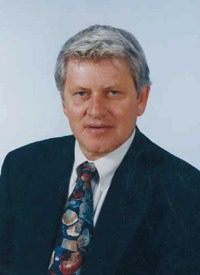
Like good and obedient informants for the government, we’re supposed to contact Obama’s snitch line to report anything “fishy” that’s being said about the administration’s flawed plan for health care reform.
Bad information and rumors “often travel just below the surface via emails or though casual conversation,” said the message from the Obama White House. “Since we can’t keep track of all of them here at the White House, we’re asking for your help. If you get an email or see something on the web about health insurance reform that seems fishy, send it to [email protected].”
I complied, helpful citizen that I am, by sending them what I thought was the most fishy thing that’s going on: “What’s really ‘fishy,’ really stinky and rotting from the head down, is that it’s beginning to feel a lot like Cuba around here.”
Castro set up a massive snitch network across Cuba that was designed to report any “counter-revolutionary” activity.
The neighborhood watch groups, the Committees for the Defense of the Revolution (CDRs), served as Castro’s “eyes and ears on every block in Cuba,” reported Washington Post writer Manuel Roig-Franzia in an October 2007 article.
“All Dissent is Treason” was Castro’s 1960 slogan after he toppled the Batista government. A half century later, the motto is still plastered on the country’s billboards.
“The concept behind the CDRs was to create a citizen force that would reinforce the dictates of Cuba’s government, establishing a kind of omnipresent peer pressure network among next-door neighbors,” explained Roig-Franzia.
A task of CDR presidents is to organize “acts of repudiation,” reported Roig-Franzia, “in which neighbors stand outside the homes of those suspected of illegal activity and scream insults – sometimes for days.”
“Illegal activity” includes all disagreements with the central plan.
On top of having neighbors screaming insults for days, dissidents can also expect to be excluded from good jobs. “When a Cuban wants a job in the lucrative tourism industry — where a worker can earn three or four times the usual state salary — the CDR president’s imprimatur is essential,” explained Roig-Franzia. “Applicants labeled ‘anti-social,’ code for transgressions such as dissident activity or lack of interest in ‘volunteer’ projects, are almost assured of being turned down.”
Each Cuban newborn is put on the same path of mandatory submission to the state. “If a child is born, active CDR presidents pay a visit to the parents,” reported Roig-Franzia. A block committee president in Havana for the past four decades, Over DeLeon, described his child-shaping role to Roig-Franzia: “We start to attend to the political development of the child, in a gradual way, from the time they are born.”
And to make sure the kid is growing up on a block where there’s no independent thinking? “Anyone who is not a revolutionary is an enemy of the state,” DeLeon asserted. “We know who the dissidents are, where they work, who they meet with — we know everything that happens on this block.”
That sounds like the imperious and overbearing voice of House Speaker Nancy Pelosi when she was commanding House Democrats to pass the cap-and-trade global warming bill, even though they hadn’t read it and things have been cooling off on their own.
“Every aspect of our lives must be subjected to an inventory,” Pelosi declared. That’s to shrink our allegedly Earth-killing carbon footprints — exempting her, of course, as she turns into Big Foot and orders a military jet to fly her off to Italy at taxpayers’ expense for some Old World meatballs.
And so now we have a special place at the White House to forward any emails that might contain some “fishy” ideas. They’re not collecting names, they say, not developing an enemies list. It’s just that they want to hear over and over again, day after day, the same “rumors” and concerns that are going around the neighborhood about ObamaCare.
How many times do they have to hear the worry that the plan will lead to rationing? Or that people are concerned about much of the private sector in the health care system disappearing once it’s being undercut by tax-bankrolled government entities? Or that people don’t believe that they’ll be able to keep their current doctors and insurance and access to care once the central planners start calling all the shots.
They already know all this and what’s most “fishy” is that they’re still asking us to report on “casual conversation” that might be insufficiently obedient.
Ralph R. Reiland is an associate professor of economics at Robert Morris University in Pittsburgh.


